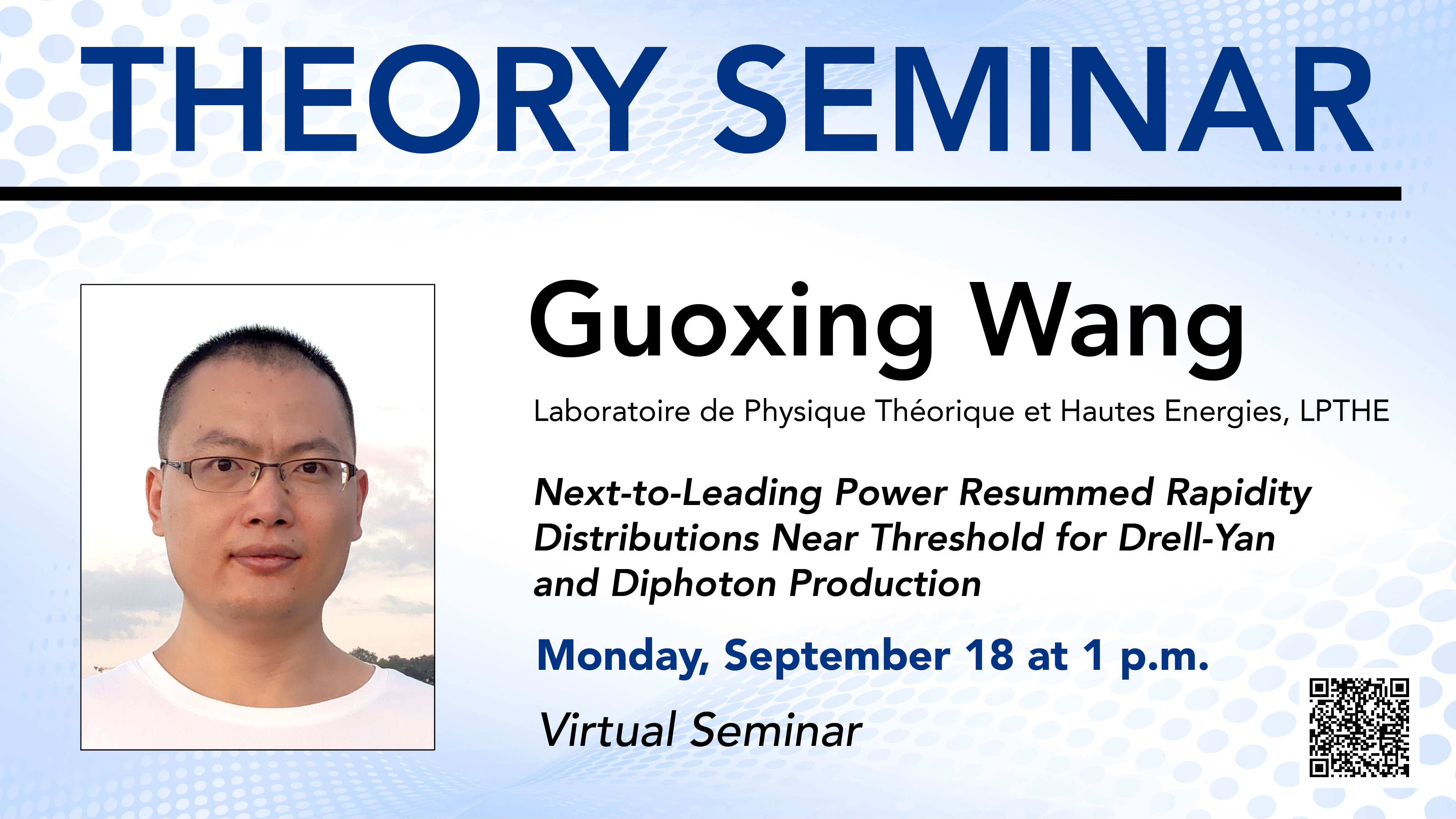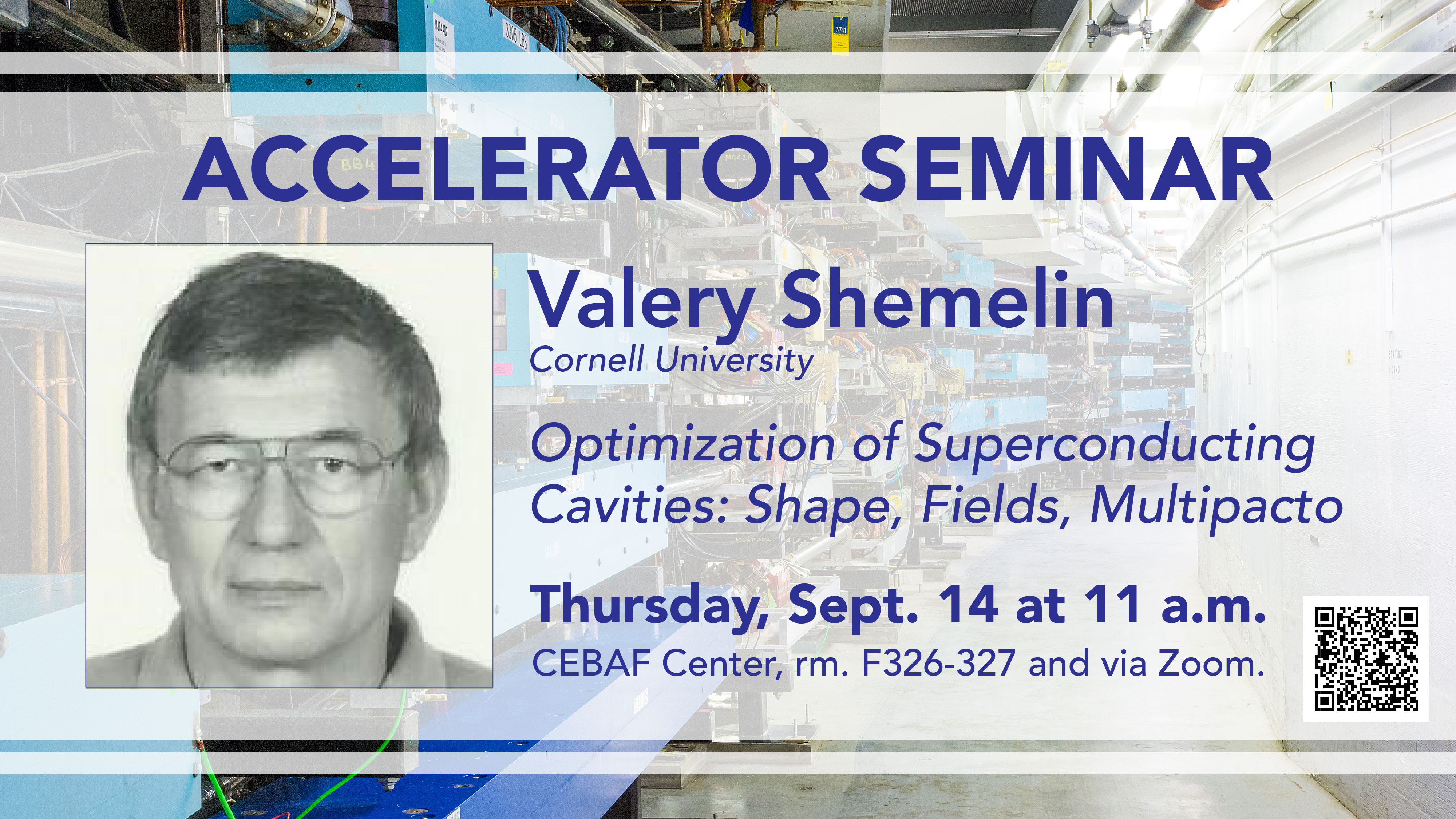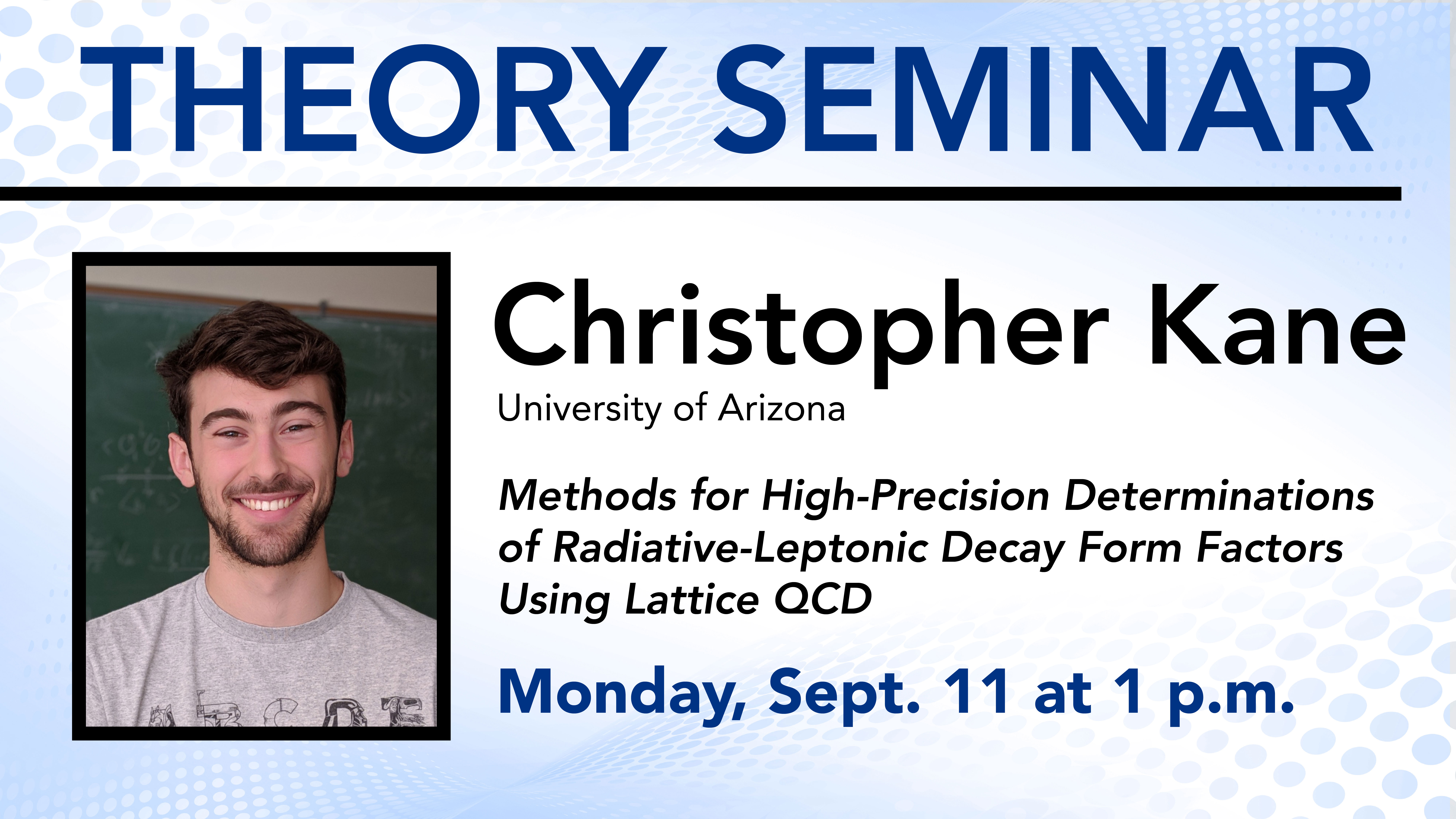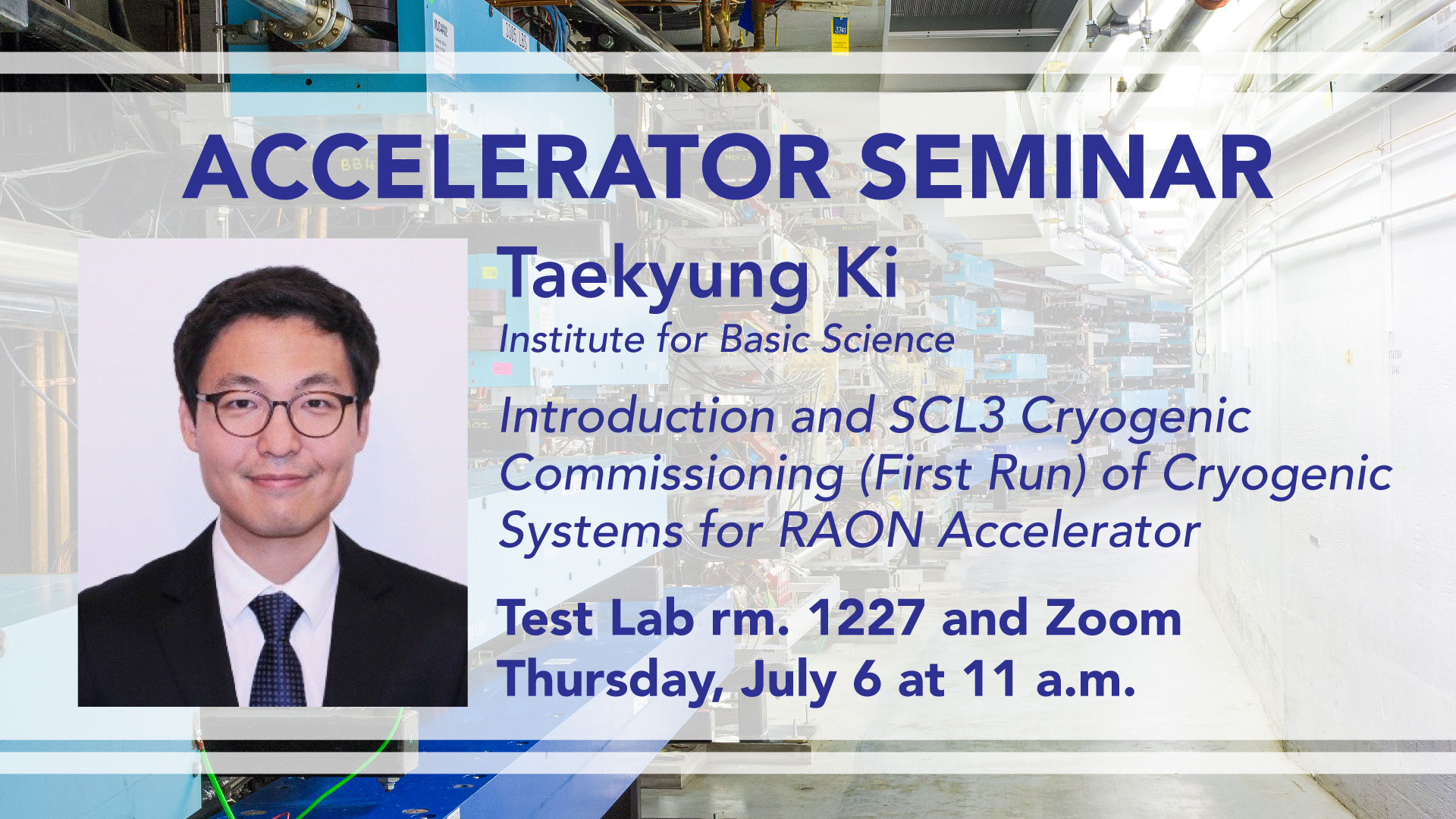JEFFERSON LAB SEARCH
-
Fermilab launched a quantum program in 2017 to explore the overlaps between quantum science and technology and the lab’s primary mission of high energy physics. These overlaps include areas where Fermilab expertise and infrastructure contribute to the larger QIS ecosystem, such as applications of SRF accelerator technology for quantum devices, as well as exploring how quantum sensors and quantum computers can contribute to advancing fundamental science. Quantum sensors are now enabling the launch of new experiments, including MAGIS-100, the world’s first 100-meter scale cold atom gradiometer, aimed at detecting gravity waves and wavelike dark matter.
-
A recording of the theory seminar on Wednesday, August 9th, 2023.
A talk by Utku Can of University of Adelaide.
-
Accelerator Seminar | Dr. Taekyung Ki | July 6, 2023 | 11 am | TL 1227/Zoom
Introduction and SCL3 Cryogenic Commissioning (First Run) of Cryogenic Systems for RAON Accelerator





